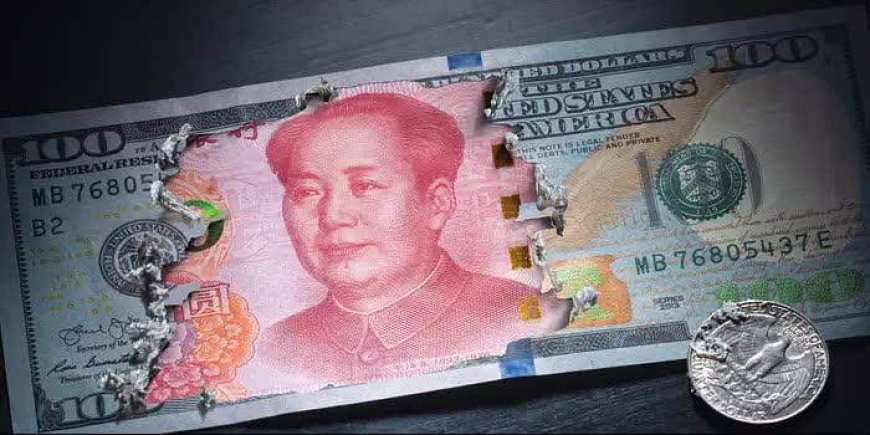The End of Dollar Dominance? China-Saudi Arabia Currency Swap Agreement Signals a Global Chang
As the dust settled after the cataclysmic Second World War, a new era dawned, accompanied by the ascent of the US dollar as an internationally recognized currency. In the realm of commerce, it swiftly emerged as the preeminent global currency, bestowing upon the United States an unparalleled hegemonic tool within the international system. Leveraging their dominance in international organizations and institutions, the Americans deftly wielded the dollar to cement their status as a superpower. However, this monetary instrument has not been devoid of controversy.

Over time, the United States, propelled by the collapse of the Soviet Union and the rise of new powers, has increasingly deployed the dollar to serve its own interests. In a relentless pursuit of political leverage, American policymakers have resorted to sanctions and other forms of economic control, aiming to shape the behavior of nations according to their will. This approach has inadvertently fostered a global movement seeking to challenge the hegemony of the dollar, prompting countries to gradually chip away at this emblem of American power.
The Tide of De-Dollarization
In response to repeated abuses by the US government, numerous countries have veered towards conducting trade exchanges through alternative currencies in recent years. This trend has gained significant momentum in recent months, with some nations once allied with the United States forsaking the dollar in select transactions and opting to engage in commerce utilizing their own currencies. The de-dollarization movement is no longer a mere whisper but an echoing chorus demanding change.
Consequences for the United States and Western Economies
The ramifications of de-dollarization are far-reaching, particularly for the United States, Western economies, and the specter of inflation. As countries break free from the clutches of the dollar market and eschew US Treasury bonds, a domino effect ensues, potentially triggering rampant inflation within America and, in the worst-case scenario, jeopardizing the stability of the West. The China Daily recently underscored this concern, shedding light on the perils of dollarization and its implications for global economic equilibrium.
China-Saudi Arabia Currency Swap Agreement
In a bold move responding to the pitfalls of dollar dependency in international transactions, even Saudi Arabia, a longstanding US ally, has resolved to sever some ties with the dollar. Notably, a currency swap agreement worth an impressive 50 billion yuan, equivalent to $6.93 billion or 26 billion Saudi riyals, was recently inked between Saudi Arabia and China. The central banks of both nations announced their accord to exchange local currencies, a testament to the burgeoning bilateral relations between these formidable actors.
It is worth highlighting China's persistent efforts to bolster the role of the yuan in international trade and reduce its reliance on the dollar. Ensuring a stable energy supply stands as a key motivation behind this currency exchange initiative. China's central bank, Bank of China, opened its first branch in Riyadh two months ago, following the footsteps of the Industrial and Commercial Bank of China, which established a branch in Saudi Arabia in 2015. These developments underscore China's strategic agenda to diversify its economic partnerships and gradually diminish the dollar's grip.
Implications for the Future of the Dollar
Presently, the bedrock of global support for the dollar rests upon its connection to oil and oil products, with Saudi Arabia leading the charge as the world's energy production maestro. An examination of the annals of international political economy reveals that when the Zionist regime was established, Saudi Arabia contemplated abandoning the "dollar" for oil transactions, actively encouraging other Arab nations to follow suit. Consequently, the United States found itself beseeching Saudi Arabia for support and acquiescence.
Today, we witness a steady erosion in the power of the dollar, its decline unfolding at an unprecedented pace within the international system. This precipitous trajectory poses a formidable challenge to the hegemony of the United States, potentially dealing a seismic blow to its standing. As the world watches on, the fate of the dollar hangs precariously in the balance, its dominion teetering on the precipice of transformation.













































